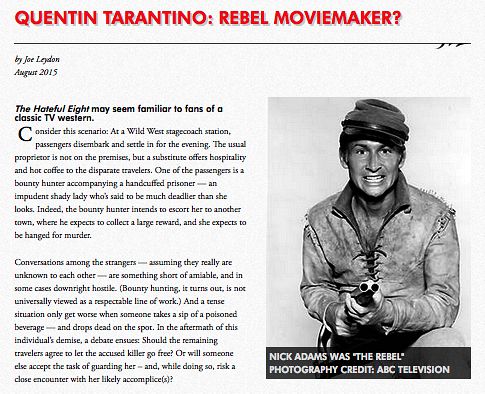I’ve hiked in the Swiss Alps but I’ve never climbed a rocky mountain. Hell, I’ll probably never even visit Nepal much less get close to Mount Everest. (I’m more of a warm weather/balmy climes type of guy.) But after seeing Baltasar Kormakur‘s Everest (Universal, 9.25) I really and truly feel like I’ve done it all — flown into Kathmandu, climbed the foothills, stayed in the base camps, climbed the damn mountain, run out of oxygen, gotten hit by a rogue blizzard and nearly died. And in 3D with actors I know and like dying around me. But I made it down and recovered and got up and walked into the theatre lobby and hit the bathroom with 12 other guys and thought to myself, “Wow, it’s nice to be alive in a warm sophisticated city with all the amenities. But I’m also glad I just went through hell just now…a blind, howling, frostbitten hell at 29,000 feet.”
It’s a helluva thing, this film, because it doesn’t cheat or exaggerate or use CG that you can spot very easily, and because it puts you right into the grim horror of what happened to eight climbers trying to ascend Everest on May 10th and 11th of 1996. Climbers who were eaten by a mountain that does not suffer fools and doesn’t give a damn about anyone or anything. A mountain that looks at climbers making their way up and says, “You guys think you’re tough and ballsy and maybe you are, but you’d better get used to the possibility of a slow painful death and never seeing your loved ones or pets again. Because I will fuck you like a pig if I get into one of my moods.
“I’ve killed more than 250 climbers since the early 20s, and don’t presume you’re not on the list, pal. I can kill anyone, including experienced climbers. Because if you’re fool enough to climb this high and under these conditions, it’s actually pretty easy.”
Everest is realism at its most immersive and forbidding (the 3D is so good you don’t even notice it after a while), and a very strong docudrama with several actor-characters you get to know and like and care about, and edited with exactly the right amount of discipline (there’s no padding or deadweight) and clarity and feeling. It delivers real sadness but it doesn’t squeeze it out because it doesn’t need to. It just lets the facts wrap themselves around you.







